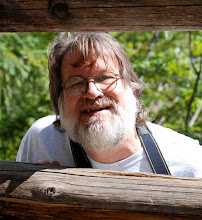Hilary Swank: Where Are You?
The trouble with the celebrity system in our land is that I can never contact a celebrity when I’m touched by one. I was touched by something movie star Hilary Swank said/did on 60 Minutes last night, and I wanted to reach her. Good luck, I know.
So maybe through the magic of the Web and networking and serendipity, Hilary Swank will get this message in a blog. (And if she doesn’t pick it up, maybe it will mean something to you.)
Here is some of the transcript from the broadcast, Mike Wallace reporting:
Swank says she is still deeply in love her husband, and planning for a family. But she's doing her best to keep her private life private. She did, however, tell Wallace one very personal story, which began with a dream.
"I was dreaming a lot that I was going to have to save someone's life. And I thought, 'Well, I'm not gonna ignore this dream anymore,'" says Swank. "And I got certified in CPR. And I'd say three months after that, someone collapsed in an airport."
"I dropped my stuff right there, saw him on the ground. He was the color of an eggplant," says Swank. "He'd not only fallen. He had had a heart attack and wasn't getting -- he was dying. So, I just administered CPR until the paramedics could get there."
"He didn't live," she says, crying. "I mean, I got his heart going. And I kept – I didn't get his heart going. But I acted as his heart, pumping his chest."
Her emotions are always close to the surface. And it’s helped make her one of Hollywood’s best actors, and one of the most well-adjusted 30-year-olds in any profession.
It was clearly apparent watching the program that Swank was deeply moved by this man’s departure. And it was her uninhibited display of emotion as she told the story to Wallace that tugged at my heart.
I so much wanted her to know about The International Association for Near-Death Studies (IANDS). I so much wanted to share with her Kenneth Ring’s Lessons from the Light: What We Can Learn from the Near-Death Experience.
Through these resources Hilary could see a much different scenario than the one she may be packing around with her, which I imagine to be “losing him.”
How can you read account after account of people’s near-death experiences and not be moved by the consistency of the message that there is life beyond the body?
I am reminded of that scene in the movie Always where the flyer is performing emergency CPR on the school bus driver while the soul of the driver is standing nearby. In that version, the driver decides to rejoin his body.
Obviously, NDErs come back, too. This is how Kimberly Clark Sharp describes the very first part of her NDE in her book After the Light:
It was easy to give up and be quiet, easy to surrender. I just slipped away, as if I was falling asleep without being drowsy first. I had no fear, no sense of alarm or panic. It was like being carried someplace that was inviting, comfortable, and safe—like my warmest childhood memories of being carried to bed by one of my parents. There was that same sense of security, of being taken to a place where I could rest, and be cared for. Where I would be loved.
It just amazes me. With all the hurt and grief and loss that death and dying cause in this world, and on countless 60 Minutes programs, why isn’t mainstream society paying more attention to these awesome accounts of life outside of the body?
Why, why, why?
Hilary and everyone: Lessons from the Light is an awesome read, especially if you have not had an NDE and want to know more about what it’s like to have one. It's also great for anyone wondering what transformation is like for those who have gone on.

